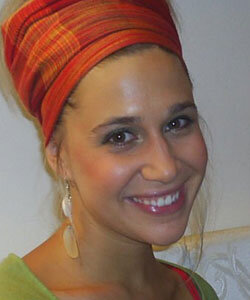Carmen Casco de Lara Castro born Asunción, Paraguay June 17, 1918 (d. 1993). Paraguayan human rights advocate. Founding president Commission for the Defense of Human Rights; resigned from Chamber of Deputies in protest of violation of presidential term limits, 1977.
Quotations
“Let us turn [Paraguay] into a country without political prisoners, where justice will reign so fairly that it will shelter everyone, without the cancer of torture carried out by men who get drunk on another person’s pain, as if they had taken drugs. With Christian love we should put an end to hate if we don’t want it to have power over Paraguayans. May God grant that violence finds no inspiration in Paraguay. We must combat treasonous assaults in our country with justice and not with violence.” (Dec. 15, 1977 resignation speech; photo Wikipedia)
Carmen Casco de Lara Castro born Asunción, Paraguay June 17, 1918 (d. 1993). Paraguayan human rights advocate. Founding president Commission for the Defense of Human Rights; resigned from Chamber of Deputies in protest of violation of presidential term limits, 1977.
Quotations
“Let us turn [Paraguay] into a country without political prisoners, where justice will reign so fairly that it will shelter everyone, without the cancer of torture carried out by men who get drunk on another person’s pain, as if they had taken drugs. With Christian love we should put an end to hate if we don’t want it to have power over Paraguayans. May God grant that violence finds no inspiration in Paraguay. We must combat treasonous assaults in our country with justice and not with violence.” (Dec. 15, 1977 resignation speech; photo Wikipedia)
Carmen Casco de Lara Castro born Asunción, Paraguay June 17, 1918 (d. 1993). Paraguayan human rights advocate. Founding president Commission for the Defense of Human Rights; resigned from Chamber of Deputies in protest of violation of presidential term limits, 1977.
Quotations
“Let us turn [Paraguay] into a country without political prisoners, where justice will reign so fairly that it will shelter everyone, without the cancer of torture carried out by men who get drunk on another person’s pain, as if they had taken drugs. With Christian love we should put an end to hate if we don’t want it to have power over Paraguayans. May God grant that violence finds no inspiration in Paraguay. We must combat treasonous assaults in our country with justice and not with violence.” (Dec. 15, 1977 resignation speech; photo Wikipedia)



















